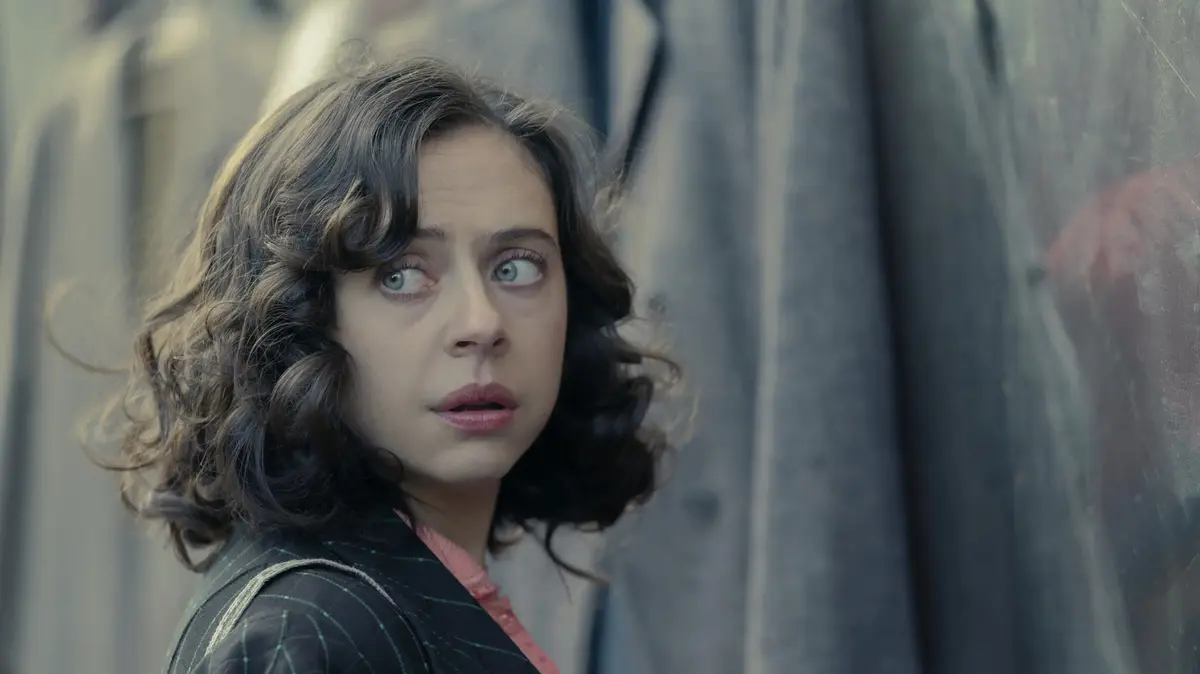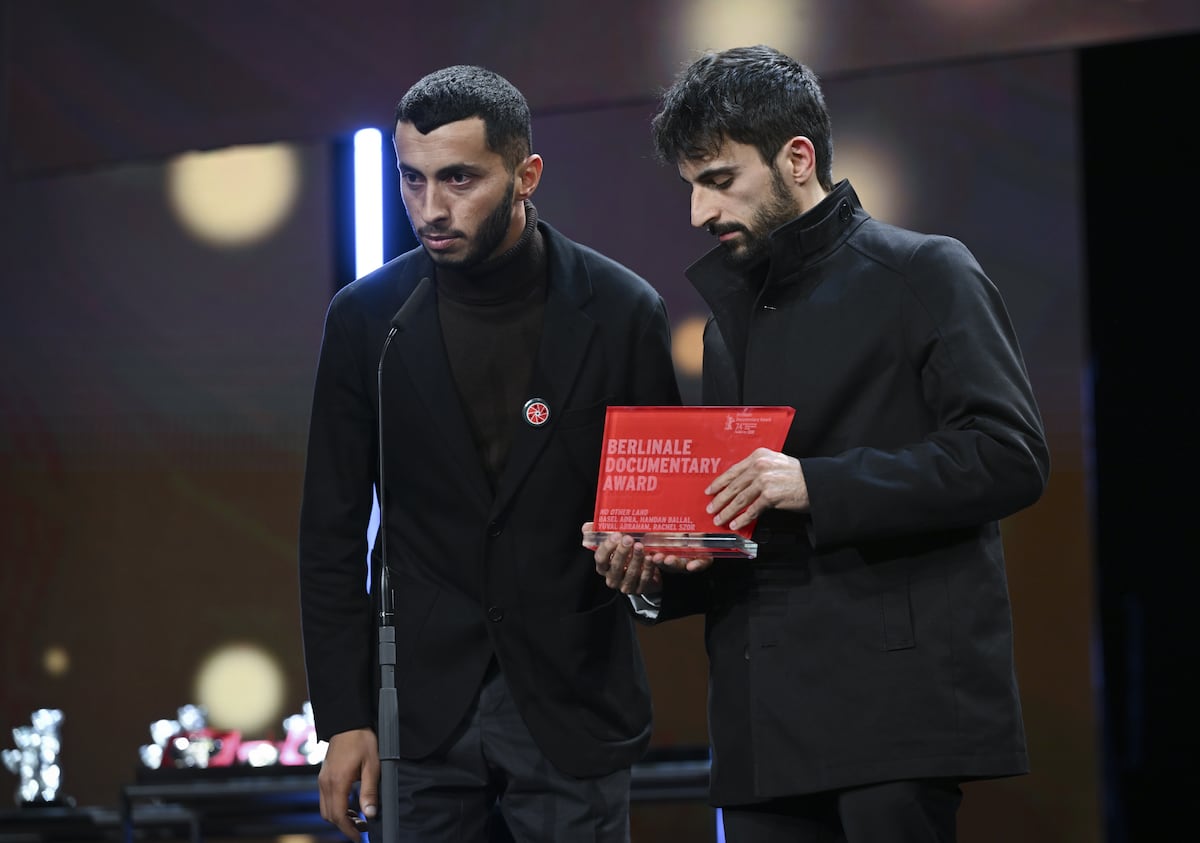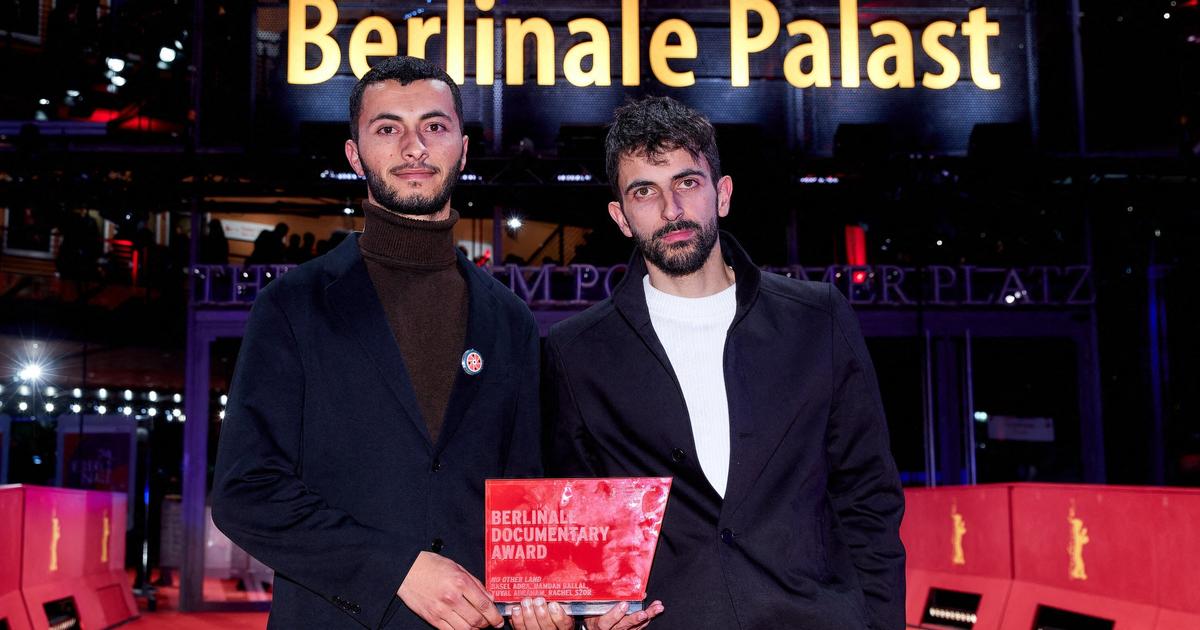Trailer for the series "Little Light" (Disney Plus)
Since it was published for the first time in the early fifties, the diary of Anne Frank has become one of the best sellers in history and has received a long series of adaptations: plays, films, mini-series and the like.
In recent years, as part of popular culture's attempt to find new angles to familiar stories, we are witnessing works that try to deal with the legacy of the famous Jewish girl in history through other directions.
And so, last year Netflix uploaded a Dutch film about Hanna Gosler, who was Anne Frank's best friend.
Now, it was the turn of Mip Hiss, the Christian young woman who worked in Otto Frank's service, and when her Jewish employer had to go into hiding with his family, she helped them hide during the war and almost managed to save their lives, risking her own life.
She managed to save Anna's diary, and thanks to her it survived and became famous after the defeat of the Nazis.
His story is at the center of "Or Ketan", one of the most talked about limited series of recent times, certainly in our region.
The series will premiere tomorrow on Disney Plus, which will show its first two episodes, after which a new episode will be released every week.
It is a joint international production by the giant corporation and Keshet International, and its production is signed by, among others, Avi Nir, as well as Tony Plan and Joan Rutter, a couple in their personal and professional lives, whose rich resume includes, among other things, work on dozens of episodes of "Grey's Anatomy".
Familiar story, new angle.
From "Little Light" (Photo: Disney Plus)
In a short Zoom conversation with Rutter on the occasion of the launch of the series, I ask in the very first question to confront the elephant in the room - the fact that, like "Schindler's List", which celebrates its thirtieth release this year, "A Little Light" also deals with the Holocaust through the story of the few righteous Christians who came to the aid of the Jews, and not Through the story of the Jews themselves.
"There have already been quite a few films and series that told the story of Anne Frank from her point of view. They did it in many ways and in beautiful ways," she answers in an interview with Walla!
culture.
"One point of view does not cancel the other. The story of those who helped her is also important, and he cherishes the memory and the legacy of all the others who helped the Jews in the Holocaust."
The series was directed by Susanna Vogel, one of the hottest creators in Hollywood right now, who wrote the excellent screenplay for the cult hit "Booksmart" and signed on as director for "Cat Person", one of the most talked about films of the last Sundance Film Festival.
"It was important to us that Susanna direct the series," Rutter says.
"Not necessarily because Susanna is a woman and we wanted a woman to direct, but because Susanna and I shared the same vision for Mip - our vision is that Mip was a strong woman, but being a strong woman does not mean you are tough and emotionless who acts like a 'man'. Mip is a vulnerable woman for him With a range of emotions - she's sensitive but she's also funny. When you see interviews with Meep after the war, she laughs at them, and her sense of humor didn't suddenly hurt - she would have been funny during the war as well. Susanna helped us draw the complex portrait of Meep."
More in Walla!
The ballad about Ari and Anna
To the full article
"The series is not depressing homework."
Director Susanna Vogel (Photo: GettyImages, Dave Vogel)
"I define my work as feminist, and feminism for me is that the woman is a character like any other character," Vogel says.
"There is a tendency to create films and series about women who prove that they are equal to men - and that doesn't interest me. What interests me is taking women's characters and giving them the complexity that used to be reserved for men's characters. Meep is a complex character, and that's what attracted me to her in the first place." .
Were there any clichés of Holocaust films that it was important for you to avoid, or even subvert?
"I think the canon of Holocaust films is serious and buttoned-down films. There is a perception that showing light and colors is pointless in this context, but those who lived through the Holocaust lived day by day. They didn't know how it would end, and they wore bright colors, made love, fought with family members, had dinners and told jokes. We wanted to show this life, as it was. The series is not depressing homework, and I believe that people who subscribe to Disney Plus for other reasons will also come to it, and maybe they would not see a period series if it were broadcast elsewhere ".
Your works usually capture the zeitgeist.
Do you believe that "small light" does this too?
"Yes, absolutely. When I started uploading posts about the series on my Facebook, I also started receiving shocking responses from anti-Semitic trolls, and this proves how relevant the series is."
"I grew up in the nineties. We talked then about the Holocaust as the distant past, but now it seems closer than ever. You see it in the rise of nationalists, in the attack on Ukraine and in many other places. It is a dark and chaotic time, and we all have the opportunity to do something about it. Mip did something Instead of remaining passive, and I hope the series will encourage viewers to contribute to the world around them."
"It was most comfortable to stand with arms folded."
Belle Pauley in "Little Light" (Photo: Disney Plus)
Mip is played by Belle Fowley, the British actress who broke out about a decade ago in the movie "Diary of a Teenage Girl" and recently also starred in the second season of "The Morning Show".
She says things similar to what the director said, and to their credit it cannot be said that this is a message page, but simply what is being asked to say.
"In the Amsterdam of the 1940s there were two options - to do something, or to do nothing, and the most convenient was to stand on the sidelines," she says.
"Mip said that we all have the ability to help people. You don't have to be special to do it. That was her mantra until her last day. She wanted us to see ourselves in her, and we all have something of her."
Paulie grew up in a London Jewish family.
"My grandmother's family fled the pogroms in Russia," she says.
"My grandmother came to Dublin. There were no more ultra-Orthodox Jews there, and she went to study in a monastery, because that was the only option. She would sit outside during prayers.
"My grandmother passed away at the age of 93, but she felt 25 until her last day, and always said she was surprised by the not-young faces she saw in the mirror. She died a year before I was offered the role, and I would have loved to have seen me do it. She was so Proud of me. I think about her all the time. She was a classic Jewish grandmother, and made the best chicken soup in the world, but surely everyone says that about their grandmother."
If you could ask Mip one question, what would you ask?
"I would ask her what she thought of the series and if she thought we did a good job, and I would ask her where the courage came from - was it something she was born with, or did she grow up with it along the way. I would be very happy to meet her."
View this post on Instagram
A post shared by Bel Powley (@belpowley)
Edith Frank is played by Amira Cassar, the French-British actress who is remembered, among other things, from "Call Me by Your Name", in which she played the mother of the hero played by Timothy Shalam.
I tell her that in my opinion it is the most honorable and respectful representation of a Jewish mother on the screen, and ask if she sees a resemblance between this character and Anne Frank's mother.
"Unlike the mother in 'Call Me by Your Name', Edith Frank did not work, but like her, she also educated her childhood to think freely," she says.
"Edith was a very progressive woman, and Otto knew that when he married her. Together, they encouraged their children to sit together with the adults and discuss matters in a worldly manner. They wanted Anna to go out into the world without fear."
"There has never been such a quantity of dictators as there are today."
Amira Kasar in "Little Light" (Photo: Disney Plus)
"It was exciting to play Edith. I won't make her a saint, no one is a saint, but she had wonderful values. This whole production was so moving. Edith and Otto were such generous people, who always cared for others, and Mip of course made the sacrifice The biggest and risked her life. It was exciting to visit the attic where the family was hiding, and to see the tree outside. It was so important to the people in the hideout, and poetically, it died the year Mip died."
"This story is so relevant today. There are so many fascists, and they don't hide. There has never been as many dictators as there are today. We need people like Meep, and there are people like that - for example, the people who help the Ukrainians and the Kurds. How have we not learned from the past? How did we not learn from what happened in the Holocaust?"
Are you always so passionate or is it something special because of the nature of this project?
"Always. The day I lose my passion, I'll fill my pockets with rocks and jump into the river like Virgina Wolfe did."
culture
TV
Tags
Anna Frank
Disney Plus








